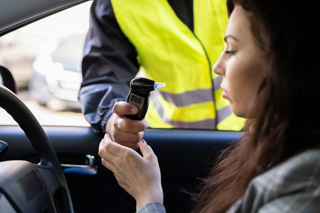Dr Lisa Dern, reader in driver behaviour, Cranfield University:
We are entering a new horizon for fleet driver training, spearheaded by research evidence and
an industry that must manage fleet driver risk.
Fleet driver training to develop vehicle-handling skills and an ability to negotiate safely through traffic is an ‘obvious’ way of improving fleet driver safety.
Many training providers use this approach but does it reduce crash risk?
Over the last decade, researchers have published several meta-analyses showing that skills-based driver training appears to have little success in reducing risk.
Drivers know how to drive safely, but they do not always do what they know.
There are differences in the choices a driver makes at every dynamic traffic event. It is motivation in response to traffic events that determines driver behaviour rather than skill and/or knowledge about the rules and regulations.
For example, if a driver is waiting for a gap in the traffic before overtaking, at the same time as being late on a job, there are two motives in competition – firstly, waiting for a safe gap and, secondly, wanting to avoid any adverse consequences at work.
Too often, drivers are motivated by work demands rather than risk avoidance.
With every new horizon, different methodologies and instruments are required for the new landscape.
Driver coaching has become synonymous with a behavioural approach to managing driver risk.
The method is based on established techniques to develop competencies in self-reflection on the behaviours and attitudes that lead to unsafe decisions.
Driver coaching aims to build self-responsibility with interventions that are tailored to the individual and their work situation.
Personalised feedback, group discussions and workshops are reliable methods to influence behaviour.
Cranfield University trains Peak Performance to deliver behavioural coaching for fleet drivers.
It also uses DriverMetric’s evidence-based and scientifically robust individualised risk assessment profile designed to develop self-reflection – the key to behavioural change.



















Login to comment
Comments
No comments have been made yet.